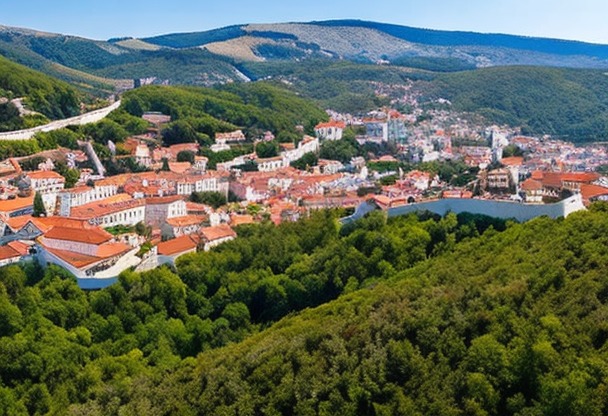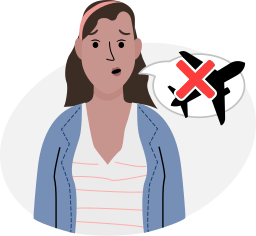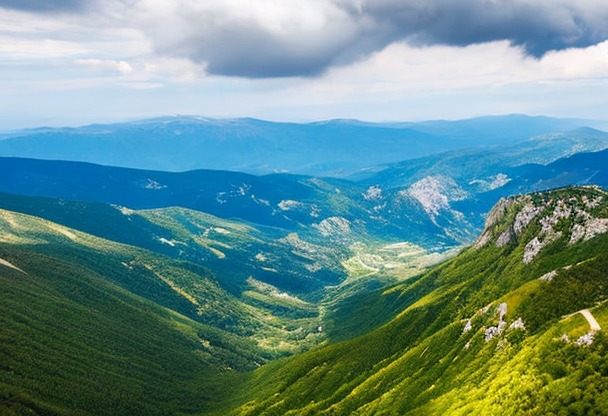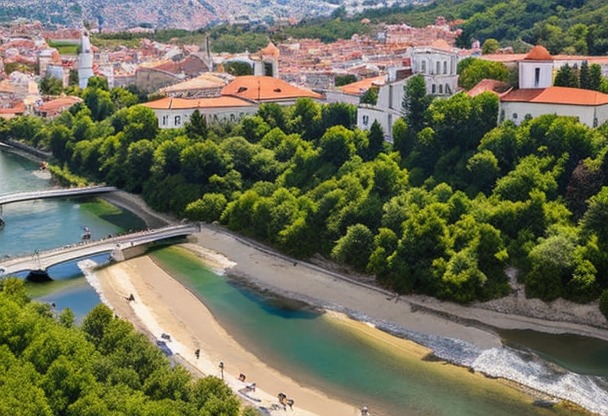Best time to travel to Bulgaria
Choosing the right period for your trip to Bulgaria can make all the difference. It's important to consider climatic elements, seasonal events and busy tourist periods to maximize your travel experience.

Location
Climate
The climate in Bulgaria
Bulgaria's climate can be divided into four distinct seasons:- Spring (March to May): Temperatures are mild and the weather is generally sunny, ideal for enjoying outdoor activities and discovering the lush green countryside.
- Summer (June to August): The summer season features high temperatures, especially on the Black Sea coast. It's also the most touristic period, attracting travelers in search of beaches and sun.
- Autumn (September to November): Temperatures start to drop in autumn, offering a pleasant climate and allowing visitors to enjoy the shimmering colors of the surrounding nature.
- Winter (December to February): Winter is marked by cold temperatures, snow and winter sports such as skiing and snowboarding in the Bulgarian mountains.
Major cultural events in Bulgaria
Bulgaria has a rich cultural heritage, and many festive events are organized throughout the year. Here are some of the main events:Sofia International Film Festival
The Sofia International Film Festival is one of the most important film events in Eastern Europe. It usually takes place in March and features films by local and international directors.The Rose of Kazanlak
Celebrated since 1903, this event pays tribute to the local production of roses and rose oil. The festival takes place at the beginning of June and includes folklore shows, concerts and exhibitions.Plovdiv Nights
This artistic and cultural event takes place over several days in September in Plovdiv, one of Europe's oldest cities. Plovdiv Nights features exhibitions, musical and literary performances and film screenings.Koprivshtitsa Folklore Festival
Held every five years, the Koprivshtitsa Folklore Festival brings together artists and musicians from all regions of Bulgaria to present their local traditions. The next festival will take place in 2020.Public holidays in Bulgaria
Certain public holidays are commemorated every year in Bulgaria. Taking these dates into account when planning your trip can help you avoid the closure of tourist sites or services:- January 1st New Year's Day
- March 3 National Day of the Liberation of Bulgaria
- Easter The date varies from year to year, but the festivities generally last from Good Friday to Easter Monday inclusive.
- May 1st Labour Day
- May 6 Bulgarian Army Day and St George's Day
- May 24 Day of Slavic Culture and Education, in honor of Saints Cyril and Methodius
- September 6 Unification Day
- September 22 Independence Day
- November 1st National Managers' Day
- December 25 and 26 : Christmas
Low and high tourist season in Bulgaria
Low season
Bulgaria's low tourist season generally runs from November to April, with the exception of ski resorts, which enjoy their high season in winter. During this period, prices are often more affordable and tourist sites less crowded.High season
The peak of the tourist season in Bulgaria coincides with summer, from June to August. Temperatures are high, especially on the Black Sea coast, and beaches are popular with visitors. Prices can be higher during this period, and it's advisable to book your accommodation in advance.Insurance

Your credit card does not cover you in all situations, that is whyIt is essential to take out insurance before you leave to avoid any unpleasant surprises. If you need to see a doctor or be hospitalized, in some countries, medical costs are very high and you will then find yourself having to pay several thousand euros.
Our partner Chapka Insurance proposes the contract CAP ASSISTANCE 24/24 with many essential guarantees.


Flights

Your flight has been cancelled or delayed ?
You may be eligible for a compensation of up to €600 ! For this, lawyers are responsible for handling your claim with the airline and are only paid when the reimbursement is effective.
In conclusion, no financial risk for you, only advantages!
Immigration statistics for Bulgaria
According to data provided by EurostatAccording to the Statistical Office of the European Union, the foreign population residing in Bulgaria has increased significantly in recent years. The number of foreigners living in Bulgaria has risen from 22,000 in 2008 to around 55,000 in 2020, representing growth of almost 150%. This increase is mainly due to the influx of nationals from neighboring countries such as Turkey, Greece and Northern Macedonia, as well as migrants from other countries such as Russia and Ukraine.Distribution of the foreign population in Bulgaria
In terms of geographical distribution, Bulgaria's foreign population is concentrated mainly in the country's major cities, such as Sofia, the Bulgarian capital, and Plovdiv, the second most populous city. Other regions of the country, notably rural areas, also receive migrants, but in smaller numbers.Most popular visas in Bulgaria
In Bulgaria, several types of visa are available for foreigners wishing to settle in the country, whether for a temporary or long-term stay. These include :- Type C visa (short-stay visa) This permit is issued for a maximum of 90 days, and allows travel within the Schengen area for tourist, family, professional or medical reasons.
- Type D visa (long-stay visa) residence permits: granted to foreign nationals wishing to reside in Bulgaria for more than three months for reasons such as employment, study or family reunification.
- Residence permits It is granted to foreigners who have been legally resident in Bulgaria for at least five years, and who meet certain conditions, particularly in terms of social and linguistic integration.
Visa application procedure in Bulgaria
To obtain a visa or residence permit for Bulgaria, applicants must follow a specific procedure which includes submitting a complete file to the Bulgarian consular authorities in their country of origin. This file must contain several documents such as:- A duly completed and signed application form
- A recent passport photo
- Valid passport (valid for at least three months after the end of the planned stay)
- Proof of income sufficient to cover living expenses during stay in Bulgaria
- Health insurance valid for the entire duration of your stay
- Documents attesting to the purpose of the stay (e.g. employment contract, letter of invitation, school enrolment certificate, etc.).
International tourism figures for Bulgaria
Bulgaria is a country distinguished by the diversity of its landscapes and the richness of its cultural and historical heritage. So, despite the health crisis linked to the COVID-19 pandemic, the country continues to attract the interest of international travelers.Foreign tourist arrivals in Bulgaria
According toBulgarian National Institute of StatisticsThe number of foreign tourist arrivals in Bulgaria reached around 9.5 million in 2018, before declining slightly in 2019 to 9.3 million. However, this downward trend was accentuated in 2020 due to the restrictions imposed by the COVID-19 pandemic, with only 4.1 million arrivals recorded.Bulgaria's main tourist markets
Bulgaria mainly attracts visitors from Europe, especially from neighboring countries such as the Czech Republic and Hungary. Romaniathe Greecethe Türkiye or the Serbia. Tourists from Germany, the UK, Russia and other European countries also account for a significant share of international arrivals in Bulgaria.Bulgaria's main tourist destinations
The country offers a wide range of tourist attractions, some of which are UNESCO World Heritage Sites. Bulgaria's main tourist attractions include:- The city of Sofia, with its historic monuments, museums and lively cultural life
- The seaside resort of Varna, popular for its beaches and summer festivities
- The Orthodox monasteries of Rila and Bachkovo, testimony to Bulgaria's rich religious heritage
- National parks such as Pirin National Park and Rhodope Mountains Natural Park, offering numerous opportunities for hiking and observing local flora and fauna.


